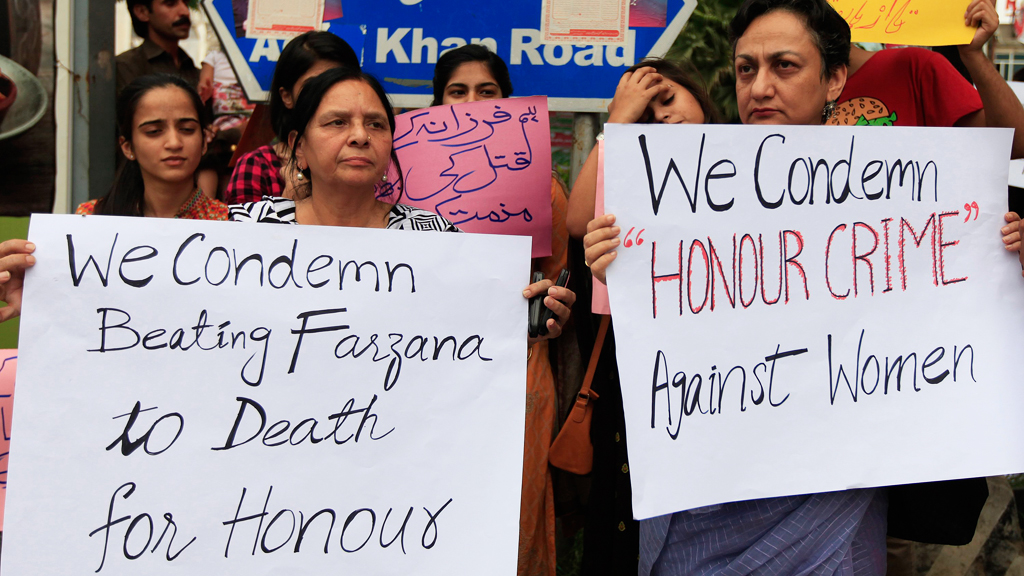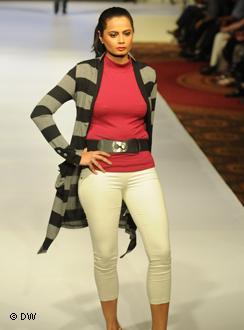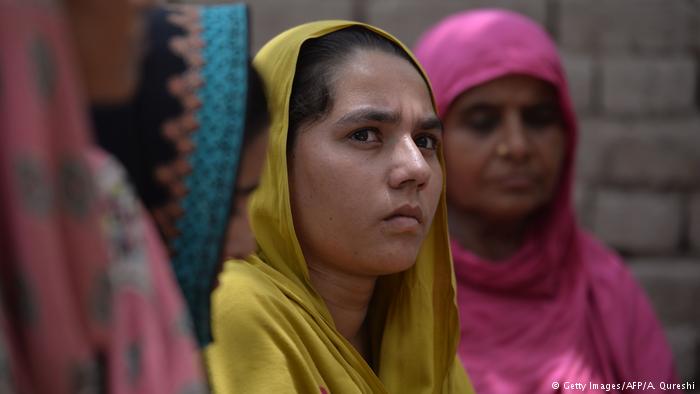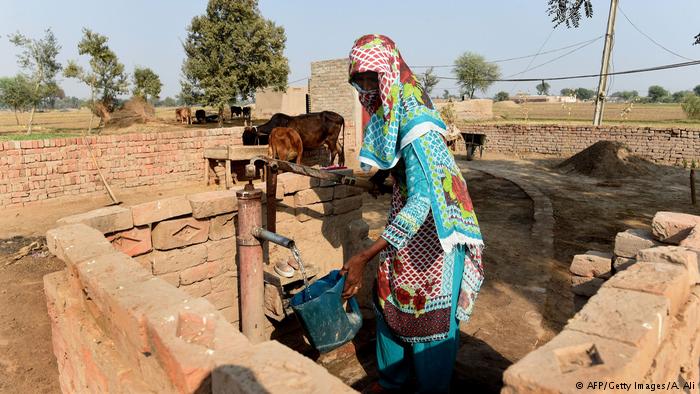‘Let the men eat first’
I am sick and tired of this, sick to death, sick to the bones of listening to statements that would in any way treat women ignominiously or as lesser creatures than men. Not because I hate men, but because I hate this concept and especially when it comes from a woman. I am done with this and I am not going to take it anymore. One more comment and I am going to explode like a bomb.
This happened last week at a private gathering at a Pakistani couple’s house in Blacktown- a town near Sydney so overly populated by the Pakistani community that you’ve to remind yourself that you are in Australia, especially if you were desperate like me to sneak away from the depressingly archetypal and stereotypical mindsets of the Pakistani men and women, especially the “aunties.”
In my case, I reminded myself of it by stepping outside the house once in a while and calling my husband on his local mobile phone for what felt like a clandestine meeting on the front porch. A little chat later, after letting out what was building inside me looking at these women, we would both go our ways. It was also a breath of fresh air for my poor husband , who was stuck in the “men’s area”- no it’s not the men’s room I am talking about, but an area of the house allocated for men, just men.
He particularly mentioned a few men who, having shown their utter surprise, had asked him why he left his job in Pakistan only to accompany his wife (me) for what she (I) had long been wanting to do- a PhD. Not wanting to be rude, he got away with saying that he had gotten a job offer “first.” Cut the crap, men. So what? If a woman can leave her family, her career, her friends and literally her entire set up just to be with her husband in a new country, why should it be a surprise if men opt to do the same?
Anyway, back in the living room, the host, a rather reasonable couple, announced that food had been served. Before I could even move from the chair at this great news, a woman from among the group called out. “Let the men eat first.” And the rest agreed. But why? Why on earth should men eat first? Have they been mowing grass all day or have they just returned from a war?
Not having eaten anything in the last three hours, my pregnant belly was going crazy. I got up and jokingly remarked, “Yes, of course! To see if there’s something in the food that will kill them.” The response: Not the way I had expected. I returned to my seat an utter silence and a few awkwardly uncomfortable looks later.
Five minutes later, when I couldn’t take it any longer, I stepped outside into the garden in the backyard, where food had been served. I started serving myself. My husband was relieved to see that I had started to eat. He has become used to my sudden eating needs and cravings by now. We smiled at each other and I took a seat close to him and two non-Pakistani men. Some Pakistani men later joined us.
We talked about politics, Pakistani media and its scandals, corruption and all that there was of interest to them. But, they started to move away one by one when I started talking about the condition of women in Pakistan and how important it was to empower them, leaving me, my husband and his Italian and Sikh friends, both of whom were migrants having settled in Australia for over 30 years.
I re-entered the living room full of hungry Pakistani ladies, staring at me as if they will eat me. A couple of them smiled and I smiled back- a smile of a fulfilled, satisfied person. A few young ones got up and boldly headed towards the dining tables, arranged in a queue in the garden. The rest followed.
Once their tummies were full, they returned into the living room. One of them shouted “Chai ho jai toh maza aa jaey” (It would be great to have tea). The host nodded and tea was served. Like the rest of the world, a wanna-be “critical discussion” started over tea. “So how long have you been here?” one of the elderly women asked me, as I scanned through my phone. I noticed her staring at my above-the-ankle trousers and my naked shoulder peeping through a side of my sweater that had slipped down a little, showing my strappy t-shirt.
“A week or so,” I replied, bringing back the slipped corner of the sweater’s neckline back to cover my shoulder. “And you’ve come here with your husband, right?” “No, he has come with me,” I laughed, only to realize that she didn’t get me.
“It’s surprising to see how Pakistan has changed,” a lady, in her 50s, dressed in a red and black shalwar-qameez (the traditional South Asian shirt and pants ensemble), said as she patted her grandchild in her lap, trying to put him to sleep as he carelessly drank from a milk bottle that he had thrown and picked up from the carpeted floor thrice, since I had started noticing.
“Yes, it has, indeed…”
Before I could say something further, she interrupted, “Aj kal ki Pakistani larkiyon ka toh Allah hi hafiz hai. Pata nahi, maaen inhen kya sikha rahin hain.” (God be with these Pakistani girls these days. God knows how their mothers are bringing them up).
She called what I see as progressive of mindsets “shamelessness,” she termed what I see as understanding mothers “vulgarity and carelessness.” She related the realization of importance of education for boys and girls alike with Malala, asking me if I thought the attack on Malala was real.
“People say don’t bring up your daughters in a western setup. I say, our daughters are way better, decent and moralized than those being brought up in Pakistan these days,” the lady went on, as a few others nodded.

The struggle for women’s rights in Pakistan goes on- some women rally here to arrest the killers of Farzana Parveen’s family. Farzana was stoned to death by her family for not marrying according to their wishes
Was she linking these comments to me or had these anything to do with the fact that I chose to ate before them because I was 23 weeks pregnant and they could see it or because I had asked my husband to support me in my life’s choices and brought him with me, who, at the moment is a stay-at-home-husband by choice, only working part-time, because he wants to spend most of this time with me taking care of me through my first pregnancy.
Their debasing comments and constant attempts at demeaning mothers in Pakistan and young girls and women- who sought education and a career and planned their families and traveled alone for work and leisure and made independent choices in life- and then insisting that they were better mothers than those in Pakistan made me want to puke right in front of them.
They made me realize how true the Indo-Pak expression about a woman being the biggest enemy of a woman was.
Weren’t they the one left too far behind, just because they had opted not to learn from the developed societies that they had been living in and choosing to segregate themselves by not interacting with or socializing with locals or immigrants, from other ethnicities, for that matter.
These women want to live in Australia, get Australian nationalities, bring their siblings and children here, but do not hesitate for a moment to criticize the host society, its progressive norms, its respect for women and those who willfully integrate into the host society with grace. I wonder why they forget that they too are a part of Pakistan, most of them having shifted here only after marriage. They’ll judge a woman for wearing jeans, but will love to backbite for hours in their living rooms, doing nothing constructive.
To all such women, I have to say one thing: The women back in Pakistan are working hard to survive in a patriarchal society and I appreciate them for their efforts. They are educating their daughters and empowering them so that women like those I met in the living room won’t exploit them under the cover of marrying them to their mostly useless sons.
Women in Pakistan are humiliated and killed every day at the hands of male chauvinism. Those who survive learn to live on only to protect their daughters from the same humiliation. They are not living on government expenses or being paid to bear children. They are not protected by the police of the law, or even by their families in some cases. They are brave, courageous and know how to live with honor.
As for the women here, I already have an answer ready for them the next time I see them. I just can’t wait to return to Blacktown.
Author: Ayesha Hasan
Editor: Manasi Gopalakrishnan
You can follow Ayesha Hasan on Twitter @ayeshahasan08








